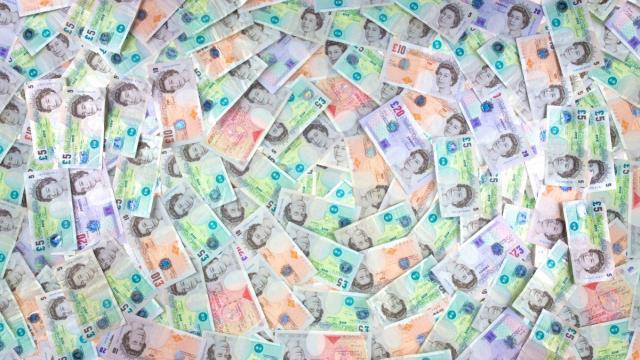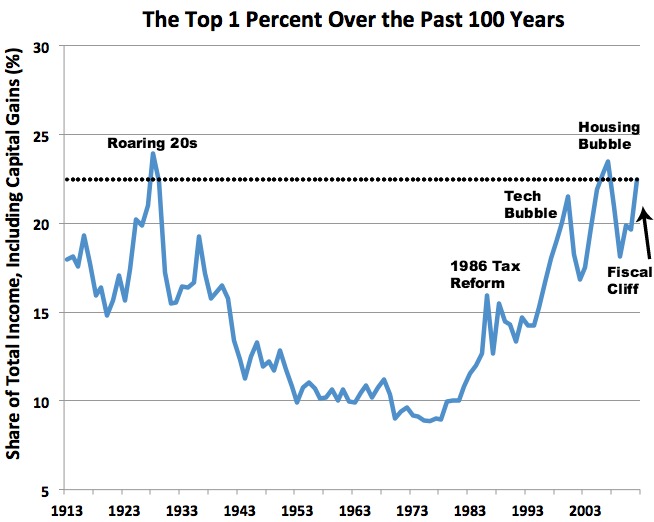
This is the second installment in a three-part series examining new economic alternatives. Read the first part here.
People’s Quantitative Easing could transform the economy to serve society. It could prevent the next global financial crash. Or, in the aftermath, it could provide an economic escape route for societies worldwide.
The next financial meltdown is expected, and many say soon. Across the spectrum political analysts are speaking more about when than if. Two significant factors explain the coming economic implosion: first, the structural problems that caused the 2008 crisis have not been adequately dealt with (or in some cases even recognized), and second, the measures to "rescue" the economy have in fact exasperated the crisis.
People’s QE
The proposed People’s QE policy aims to rekindle the economy by rebuilding the productive parts that create jobs – as opposed to the destructive parts, like predatory speculation. In a nutshell, People’s QE means giving central banks the power to inject money into progressive projects.
For instance, there could be a mechanism to buy green bonds that push investments in renewable energy. Or an incentive to buy bonds that invest in social housing, or public transport, or any number of other socially useful projects. All these schemes would create real jobs, in turn injecting more money into the real economy.
Historically, People’s QE has received support from diverse quarters – ranging from John Maynard Keynes to the ardent neoliberal Milton Freedman. And today the idea is becoming more popular than ever. Jeremy Corbyn’s Labour Party, the main UK opposition to the Conservatives in power, is promoting the plan. Such support represents a U-turn for the party which, following the 2008 crash, went in the opposite direction with a policy of bailouts for the banks.
Another version of People’s QE is helicopter money, in which every citizen receives cash as if dropped from the sky, to stimulate the economy. Support for this kind of action is growing in the Eurozone, and connects to other proposals like the ScotPound, where every citizen is given a sum of a new digital parallel currency.
Neoliberal QE
Neoliberal QE, which started earlier this decade, has resulted in central banks including the U.S. Federal Reserve, Bank of England and European Central Bank creating money to buy government bonds and commercial bank assets in massive quantities. The Fed bought assets of $4.5 trillion, the BoE bought £375 billion ($580 billion), and the ECB will buy €1.1 trillion ($1.22 trillion).
The QE programs’ stated aim is to stimulate more productive investment and rekindle the economy by injecting more money into it. However, they have failed. Neoliberal QE, more than anything, feeds the destructive parts of the economy by pumping in "hot money"to increase house prices and food speculation.
Neoliberal QE in the U.S. is responsible for creating more billionaires in the five years after 2008 than in the eight years before it.
The resounding failure of Neoliberal QE reveals the degree to which politicians missed, or misrepresented, a crucial economic point at a crucial moment in history. Triggered by the U.S. sub-prime mortgage crisis, the 2008 crisis was in fact a crisis of economic inequality inflamed by destructive financial activity. Increasing that inequality with bailouts, public spending cuts and Neoliberal QE, bankers flanked by a co-opted political and media class used monetary policies to make a bad situation far worse. They used the same failed logic in two ways.
Inequality and the 2008 Crisis
On the one hand, the economic crash was triggered by sub-prime mortgages lent to people for whom home buying was otherwise out of reach. The banks’ power to issue loans and create money for nothing, as discussed in Part I, explains why housing prices have rocketed beyond the reach of most people. According to the UK group Positive Money, over the last 40 years “banks have increased the amount of money in the economy by an average of 11.5% a year.”
Housing prices and other assets have likewise inflated, a trend replicated in the U.S. and across the world which inevitably benefits the people who own the most. Simultaneous to this is the global drop in real wages for the majority of people since the late 1970s. An explosion in housing costs and other forms of personal debt has forced the poorest to take out loans in order to meet their needs, while the middle class uses loans simply to consume. All of this, again, enriching the banks that created money from nothing.
Neoliberalism: The 1% Takeover
If Neoliberal QE causes wealth to gush upward, banks and corporations are viewed as the positive drivers of that process. Neoliberal policies instituted by Ronald Reagan and Minister Margaret Thatcher, furthered by George H.W. Bush and John Major, and entrenched under Bill Clinton and Tony Blair, were exported globally.
On a graph measuring inequality over the last century, we see the early 1970s as a time when society was "relatively" egalitarian. The gap between the 1% and majority was at its smallest then.
Fast forward to today and the 1% have never had a larger slice of the economic pie. The 1% takeover was underpinned by rewriting the rules of finance and big business to dilute worker, human and environmental rights. The news rules enabled increased speculation and predatory capitalism. Money could create money, and for the majority, that meant the collapse of the real economy with wages depressed.
The economy has been kept afloat by consumption based on debt. Once again, that debt has enabled the banks to increase their power by creating even more money from nothing. Looking back on the 2008 financial crisis, what is most remarkable is how the 1% got richer off a crisis of their own making. The mantra that "there is no alternative" held sway.
Next time, things may turn out differently.
3 WAYS TO SHOW YOUR SUPPORT
- Log in to post comments

















Comments
Fork Suspension... replied on
Fork Suspension Lamp by Diesel Foscarini
External vs.
Fork Suspension Lamp by Diesel Foscarini http://www.littlequeenrocks.com/suspension.cfm?m=id-4681